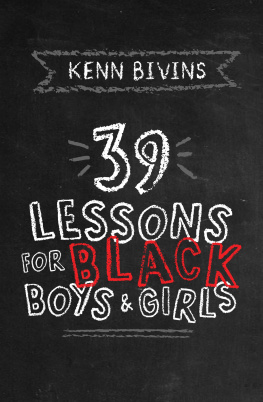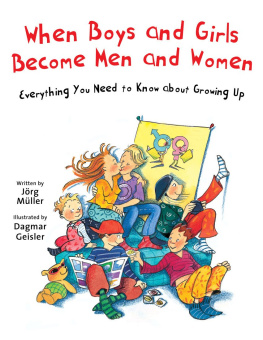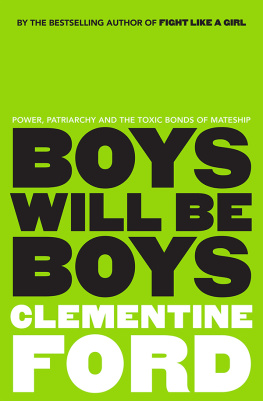
Victoria Cann is Lecturer in Humanities at the University of East Anglia. Her research is concerned with the processes through which identity is reproduced, and feminist politics more broadly. She has published on the topic of gendered audiences, identity politics and the politics of representation. She teaches gender, media and cultural politics in the Interdisciplinary Institute for the Humanities at the University of East Anglia. She also undertakes a range of feminist engagement work in the community, such as her role with Day of the Girl, Norwich.
Drawing on ambitious ethnographic research with over 100 British youth, Victoria Cann explores how taste articulation functions to regulate and reproduce gender norms within teenage culture in the UK. Through her astute analysis of gendered tastes from football to One Direction and gendered practices from shunning to fangirling, Cann guides the reader through the halls of the contemporary high school, interrogating the relationship between gender, youth, and cultural tastes that play out there. Indeed, Girls Like This, Boys Like That reminds us that youth taste matters, and that we should be paying more attention.
Jessalynn Keller, Assistant Professor Department of
Communication, Media and Film University of Calgary, Canada
Library of Gender and Popular Culture
From Mad Men to gaming culture, performance art to steam-punk fashion, the presentation and representation of gender continues to saturate popular media. This new series seeks to explore the intersection of gender and popular culture, engaging with a variety of texts drawn primarily from Art, Fashion, TV, Cinema, Cultural Studies and Media Studies as a way of considering various models for understanding the complementary relationship between gender identities and popular culture. By considering race, ethnicity, class, and sexual identities across a range of cultural forms, each book in the series will adopt a critical stance towards issues surrounding the development of gender identities and popular and mass cultural products.
For further information or enquiries, please contact the library series editors:
Claire Nally:
Angela Smith:
Advisory Board:
Dr Kate Ames, Central Queensland University, Australia
Prof Leslie Heywood, Binghampton University, USA
Dr Michael Higgins, Strathclyde University, UK
Prof sa Kroon, rebro University, Sweden
Dr Niall Richardson, Sussex University, UK
Dr Jacki Willson, Central St Martins, University of Arts London, UK
Published and forthcoming titles:
The Aesthetics of Camp: Post-Queer Gender and Popular Culture
By Anna Malinowska
Ageing Femininity on Screen: The Older Woman in Contemporary Cinema
By Niall Richardson
All-American TV Crime Drama: Feminism and Identity Politics in Law and Order: Special Victims Unit
By Sujata Moorti and Lisa Cuklanz
Bad Girls, Dirty Bodies: Sex, Performance and Safe Femininity
By Gemma Commane
Beyonc: Celebrity Feminism in the Age of Social Media
By Kirsty Fairclough-Isaacs
Conflicting Masculinities: Men in Television Period Drama
By Katherine Byrne, Julie Anne Taddeo and James Leggott (Eds)
Fathers on Film: Paternity and Masculinity in 1990s Hollywood
By Katie Barnett
Film Bodies: Queer Feminist Encounters with Gender and Sexuality in Cinema
By Katharina Lindner
Gay Pornography: Representations of Sexuality and Masculinity
By John Mercer
Gender and Austerity in Popular Culture: Femininity, Masculinity and Recession in Film and Television
By Helen Davies and Claire OCallaghan (Eds)
The Gendered Motorcycle: Representations in Society, Media and Popular Culture
By Esperanza Miyake
Gendering History on Screen: Women Filmmakers and Historical Films
By Julia Erhart
Girls Like This, Boys Like That: The Reproduction of Gender in Contemporary Youth Cultures
By Victoria Cann
The Gypsy Woman: Representations in Literature and Visual Culture
By Jodie Matthews
Love Wars: Television Romantic Comedy
By Mary Irwin
Masculinity in Contemporary Science Fiction Cinema: Cyborgs, Troopers and Other Men of the Future
By Marianne Kac-Vergne
Moving to the Mainstream: Women On and Off Screen in Television and Film
By Marianne Kac-Vergne and Julie Assouly (Eds)
Paradoxical Pleasures: Female Submission in Popular and Erotic Fiction
By Anna Watz
Positive Images: Gay Men and HIV/AIDS in the Culture ofPost-Crisis
By Dion Kagan
Queer Horror Film and Television: Sexuality and Masculinity at the Margins
By Darren Elliott-Smith
Queer Sexualities in Early Film: Cinema and Male-Male Intimacy
By Shane Brown
Steampunk: Gender and the Neo-Victorian
By Claire Nally
Television Comedy and Femininity: Queering Gender
By Rosie White
Television, Technology and Gender: New Platforms and New Audiences
By Sarah Arnold
Tweenhood: Femininity and Celebrity in Tween Popular Culture
By Melanie Kennedy
Women Who Kill: Gender and Sexuality in Post-Feminist Film and Television
By David Roche and Cristelle Maury (Eds)
Wonder Woman: Feminism, Culture and the Body
By Joan Ormrod
Young Women in Contemporary Cinema: Gender and Post-feminism in British Film
By Sarah Hill

For Nanny, Mum and Alexia.
Excellent women; past, present and future
Contents
Figures
Tables
All images created by author unless otherwise specified.
Gender in the school environment has long been a topic for academic study. Here, Victoria Cann poses the question: how do young people (re)produce gender and what role does taste in popular culture play in this process? She explores what gender means to young people and investigates the commonly held twenty-first-century belief that gender is a fluid concept for young people. She acknowledges that gendered stereotypes are both problematic and arbitrary, but her study suggests that they are nevertheless discursively powerful and we should acknowledge this as they play an important cultural role in the lives of young people.
Given that gender as a separate unit of analysis is so problematised through Bourdieus understanding of distinction, Cann argues we need to look beyond the work of Bourdieu in our understanding of taste cultures. Because gendered distinctions lead to persistent inequalities at the level of gender (especially for ciswomen, trans and queer folk), asking questions and developing understanding of how these distinctions are normalised in everyday cultural practice is vital. In order to do this, Cann suggests, what is required is a much broader understanding of contemporary taste cultures.













